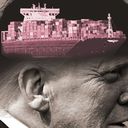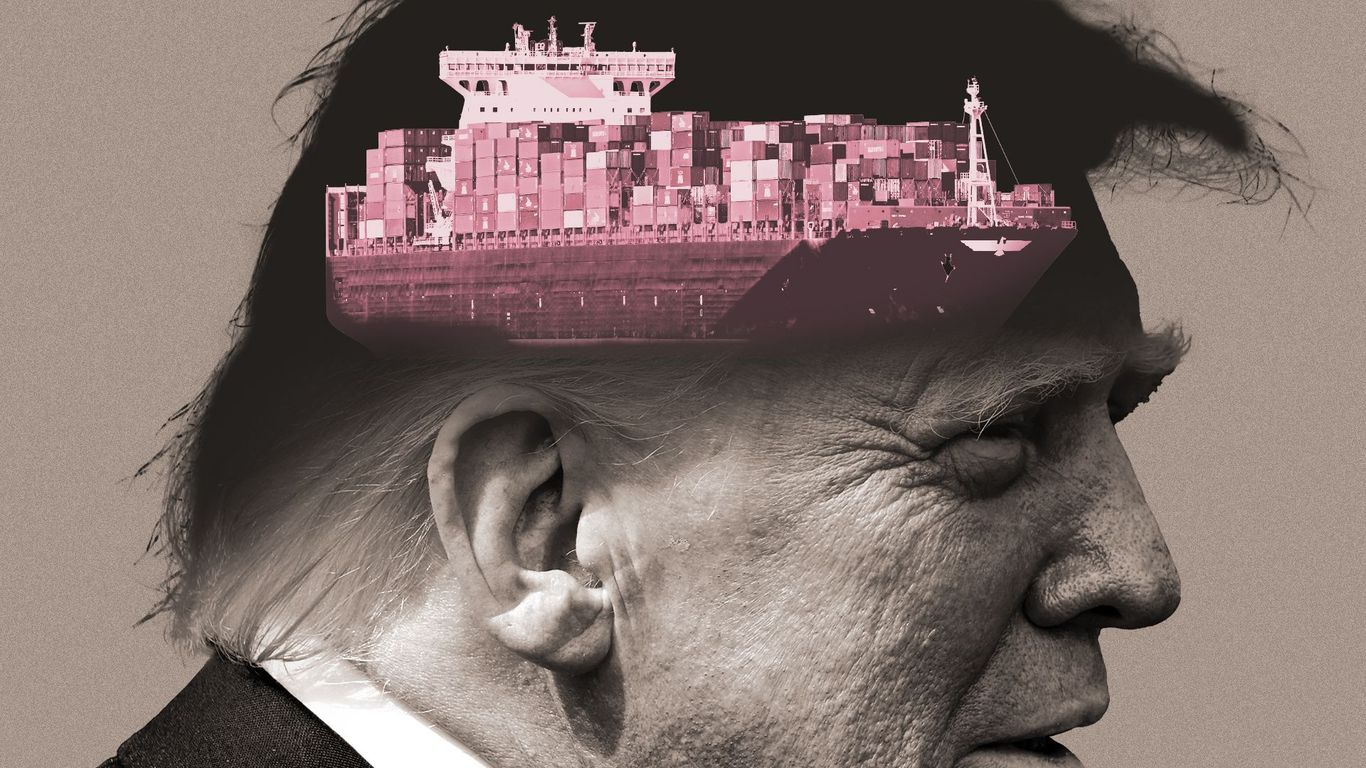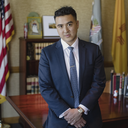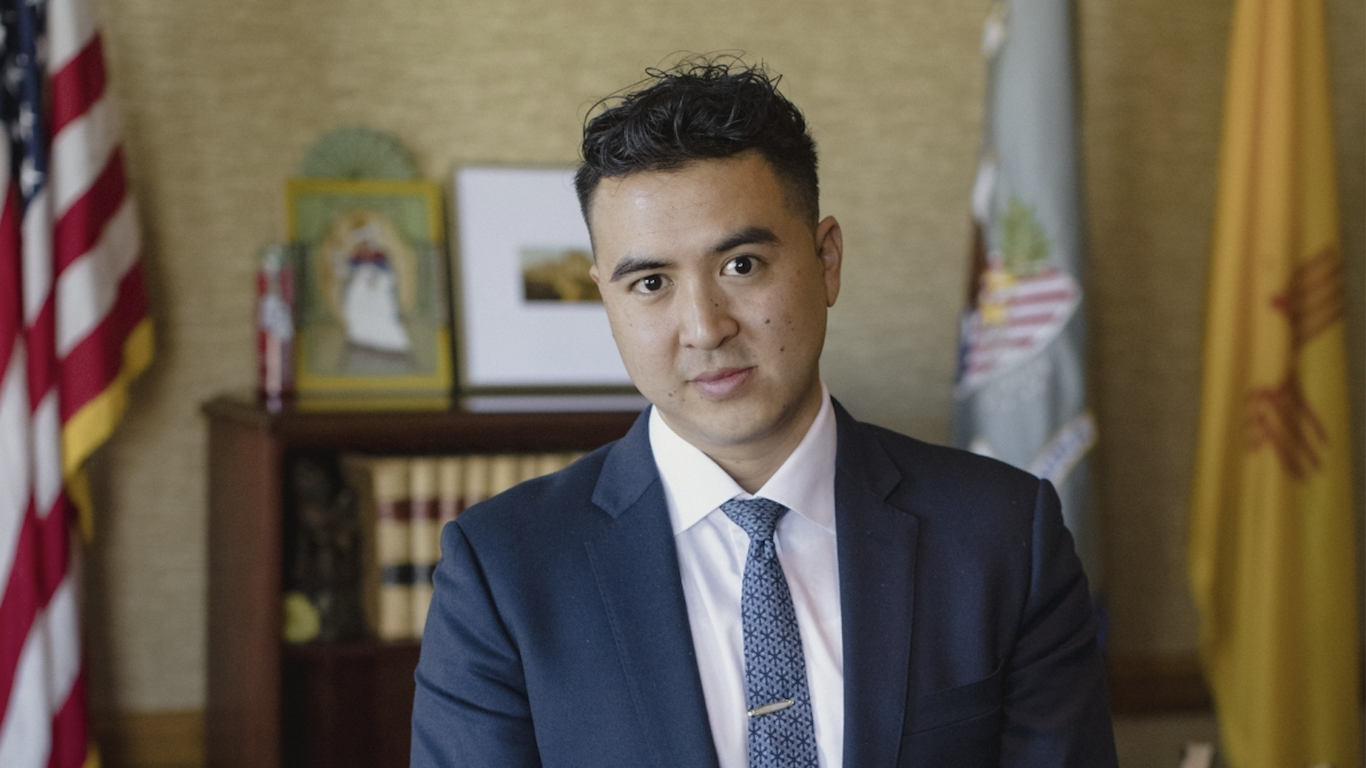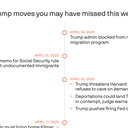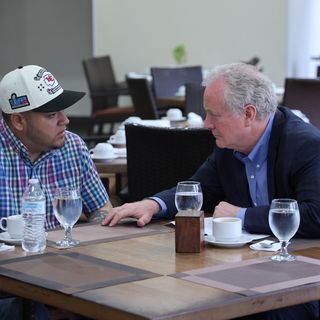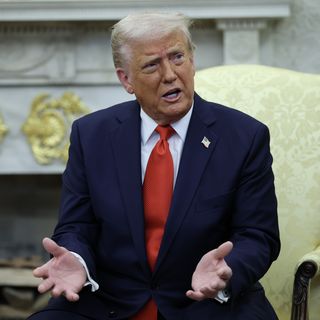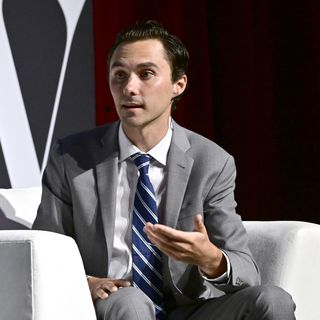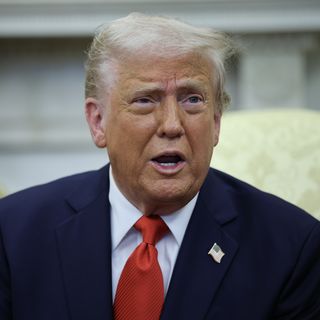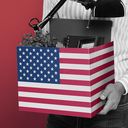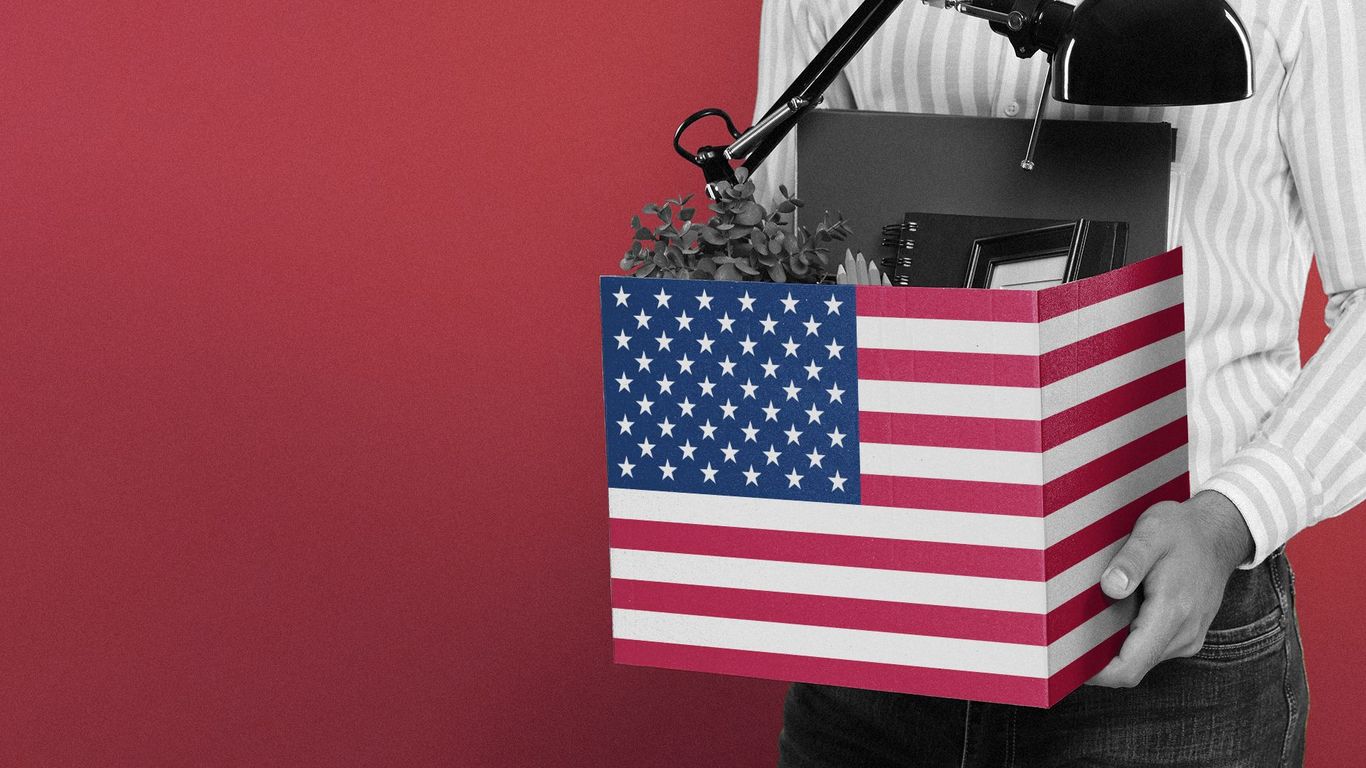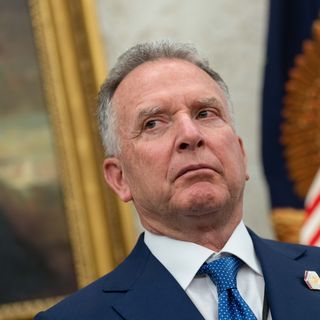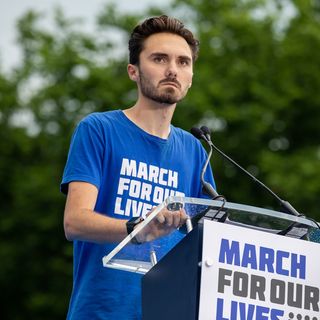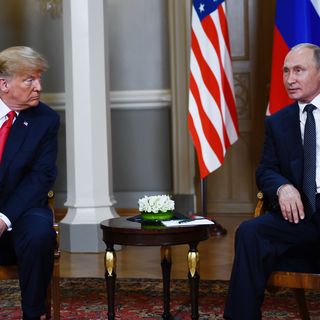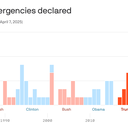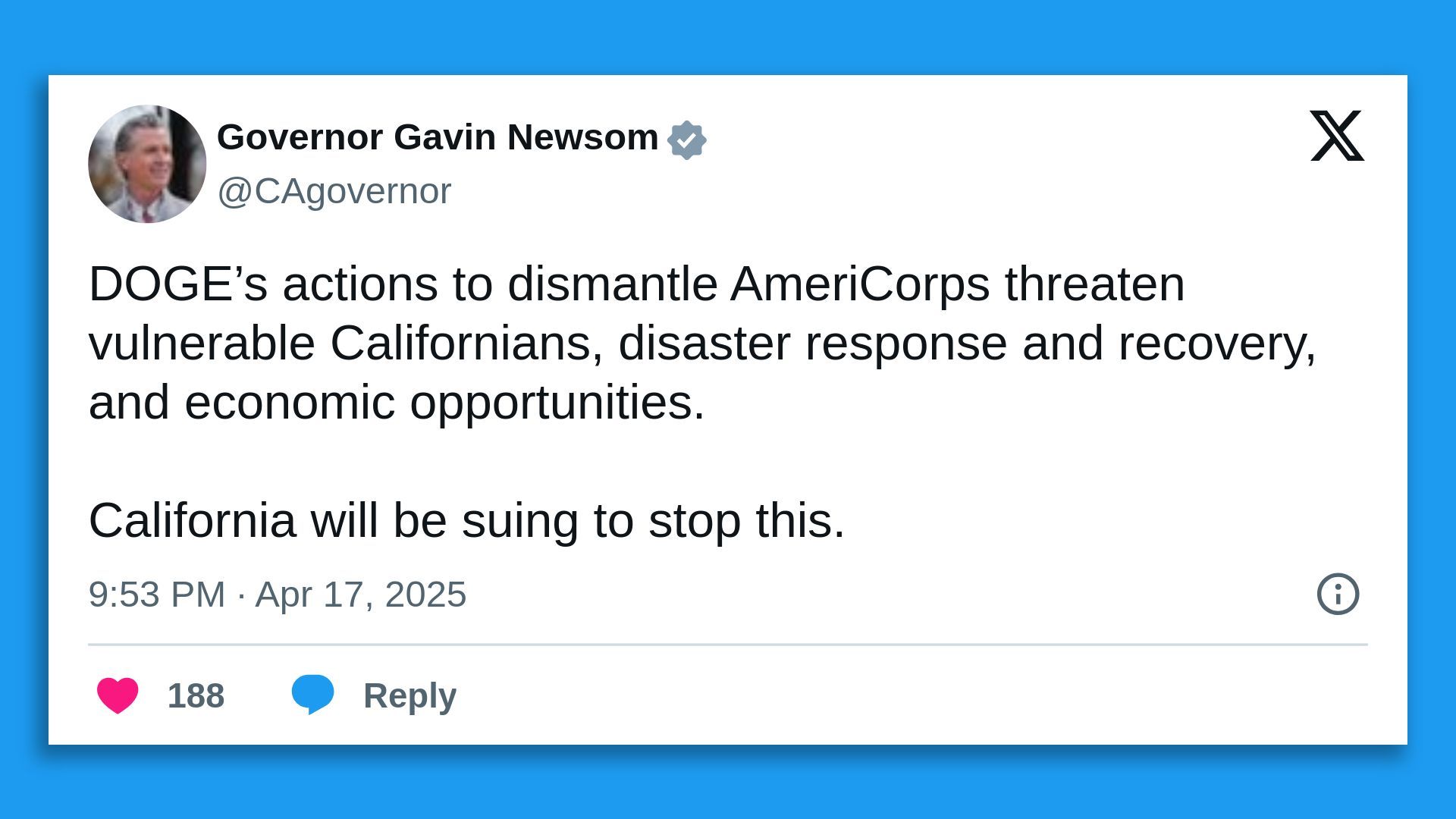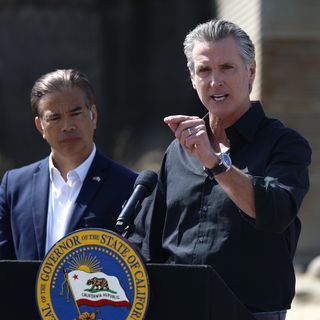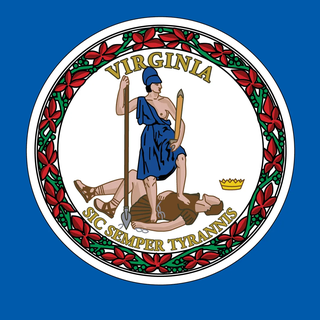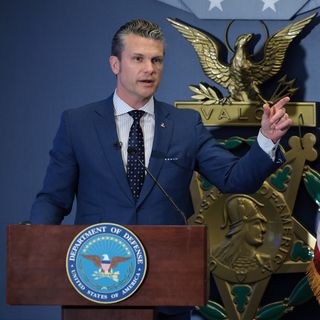Inside Trump's chip-on-the-shoulder mindset on tariffs
Stop trying to predict and appraise President Trump's tariffs policies based on economic theories or market realities. Tariffs are pure psychology for the president, fused into his brain like no other topic.
Why it matters: Trump's tariff brain is unpredictable to the outside (and to market analysts) but wholly knowable to those who know how his mind works.
- "There'll be trial and error. There'll be pushing the envelope. There'll be all of that Trumpian stuff," said a top adviser involved in trade discussions.
The big picture: Trump approaches tariffs, the remaking of the U.S. economy and the reshaping of global trade as a continuation of his presidential campaign.
- He ignored experts and assembled a team dedicated to executing his will and shrugging off the consequences of his unpredictability. He's not changing now — rocky rollout and chaotic financial markets be damned.
- "Donald Trump works at his own tempo, and he doesn't change the subject until he's sure he's clubbed people into seeing it as he does," the adviser said.
Between the lines: In Trump's first term, free traders such as then-National Economic Council Director Gary Cohn controlled Trump's impulses to impose tariffs the way he has now. Trump's current NEC chief, Kevin Hassett, is pro-tariff.
- So is the rest of the economic team: Vice President Vance, Commerce Secretary Howard Lutnick, Treasury Secretary Scott Bessent, White House trade adviser Peter Navarro, Council of Economic Advisers chair Steven Miran, and U.S. Trade Representative Jamieson Greer.
The intrigue: Trump keeps such a huge team of advisers because he invariably solicits conflicting opinions. He often suffers from analysis paralysis and can be particularly influenced by whomever he talks with last.
- Trump also can be unclear on specifics, resulting in contradictory messages from his advisers, each of whom serves as a TV avatar of his tariff brain. Bessent and Lutnick have been criticized for giving mixed messages.
- "We saw it in business with Trump," one adviser said. "He would have these meetings and everyone would agree, and then we would just pray that when he left the office and got on the elevator that the doorman wouldn't share his opinion, because there would be a 50/50 chance [Trump] would suddenly side with the doorman."
- "There are too many people in his ear," the adviser said. "You didn't see this with other presidents. Nixon didn't act as the maître d' of his own supper club, where every millionaire and billionaire who could get to him at dinner could chime in and affect policy."
On political issues, Trump is often more directionally consistent than his critics give him credit for. He's liable to switch up on policy specifics. But the direction is clear: tariffs. The specifics: wide-ranging.
- "It's about several things," his adviser said. "It's about isolating China. It's about making money for the United States Treasury. It's about settling what Donald Trump is believes is a score where, as he says, stupid people allowed countries to take advantage of us and ripping us off."
The backstory: Trump's tariff-based chip-on-the-shoulder "America First" mindset has been part of his political DNA since his first presidential-style campaign visit to New Hampshire in 1987.
- 'We should have these countries that are ripping us off pay off the $200 billion deficit," he told the Portsmouth Chamber of Commerce then.
- Today, the annual deficit is nearly $2 trillion. And the U.S. trade deficit is just over $1 trillion.
- In 1987, Trump's trade obsession was Japan. Today, it's China.
Animating Trump and his team is the belief, his adviser said, that "in its very most basic form, the patient, which is the United States economy, has been very sick. It's been sick for 40 years, and nobody would say so."
- "It took Trump to come in and say, 'Okay, the patient is really sick. It's going to die. So I'm going to put it on life support, and let's all hope and pray and work together to make sure this life support works.' That's really the way we look at it."
Reality check: Trump's mammoth imposition of tariffs and his on-again-off-again implementation of them has shaken the global financial order, caused consumer sentiment to drop, spread recession fears and damaged Trump's poll numbers.
What they're saying: Many traditional economists (and other critics) think Trump's ideas are crazed, and that his advisers are too scared to say it.
- Federal Reserve Chairman Jerome Powell, arguably the most powerful voice in the U.S. economy, warned Wednesday that Trump's tariffs will ignite inflation. That led an angry Trump to suggest he might try to fire Powell, who later said the the removal or demotion of top Fed officials was "not permitted under the law."
- Trump's team is "trying to implement a policy that, frankly, no economist believes in," Justin Wolfers, a University of Michigan economist told MSNBC on Tuesday. He criticized Trump's economic team for not giving "the hard advice that he needs."
- One outside adviser to the White House who called himself a '"plan-truster" said there is a plan and "a method to the madness," but that Trump's "grenades-first approach will also be bumpy."
What's next: During the 90-day pause Trump imposed last week on "reciprocal" tariffs, Greer's team and Bessent are working most prominently on negotiating trade deals with other countries.
- For about an hour Wednesday, Lutnick and Bessent negotiated with Japan's trade minister in the White House's Roosevelt room, a source said.
- China's president, Xi Jinping, isn't yet talking to Trump. Xi is touring other countries to present China as a more reliable and stable partner than the U.S.
- Bloomberg reports China wants Trump to show more "respect" and appoint a point person for negotiations.
- "We're looking at a trade war with China," another Trump adviser said. "It's no time for summer soldiers."
